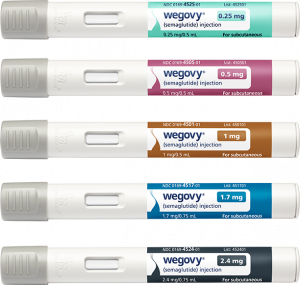THE GIVING TREE tells the story of a single apple tree who gives away everything it has to one boy over the course of his life. The boy returns to the tree time and again to ask with an outstretched hand for what he needs. A favorable reading of Shel Silverstein’s beloved tale draws the conclusion that the tree is selflessness in action, and that the book is a parable on the joys of giving. A more skeptical reading suggests that the model of hand out, rather than hand up, needs further evaluation.
Brittany Underwood, founder and president of the Akola Project based in Dallas, Texas might be one such skeptic, but don’t call her a cynic. She is a positive force of inspiration, a leader showcasing what changing the giving model can look like. “It’s outdated,” she says, an Akola necklace hanging from her neck. The piece, made with beads hand-cast by Ethiopian artisans from former artillery shells and assembled by the dignified Akola women in Uganda, symbolizes “a beautiful story of redemption.” One that has been ten years in the making.
Founded in 2004, Akola is a non-profit organization dedicated to transforming the lives of disenfranchised women with a hand up. “We strive for excellence,” says Brittany, “because fair trade wages aren’t fair,” further explaining that it is now cheaper to produce some goods in Africa than in China, and that many other companies have chosen to produce their goods with artisan groups, rather than develop the local economies and trades. Which is not good enough for Akola.
“If your level of impact isn’t robust,” Brittany asks, “shouldn’t you just be a business and not a social business?”
In the last decade the market has seen a shift. More companies are choosing to promote the social entrepreneurship end of their businesses, but there is still very little regulation or transparency when it comes to defining what that actually means. If we think about the terms “fair trade” or “made by local artisan,” in the context of the ubiquitous “natural” label on foods, the comparison is apt. “Natural” doesn’t necessarily mean good for you, in the same way that “artisanal” might not actually be doing good for the workers.
These terms often indicate a false positive and Brittany and Akola are urging consumers to look behind the hang tag. While it’s easy to focus on the necklaces and the other accessories Akola sells, because they are “as beautiful as the women who make them,” a quick peak behind the beading will reveal what Brittany and her team have built: a sustainable model that has the potential and is revamping the social business movement. It’s craftswoman-ship meets socialpreneurship with global impact.
“Look, I’d like to say that everyone is doing the best they can. I like to stay positive, because some companies are taking the next step in terms of need, but it’s not enough for brands to work with artisanal groups, and if we set the bar at excellence, then we’ve laid the groundwork for other companies to do the same.”
[Define it: Artisan Group : a self-managed co-op of artisans with craft skills that have been passed down for generations. In Uganda, it may be paper beads; in Guatemala it’s weaving. Brittany says, “We feel Akola’s women are different than an ‘Artisan Group’ because the women we work with did not have marketable vocational skills before we met them. We spend years developing them as professional employees and skilled artisans instead of purchasing products from already developed artisan groups.”]
She continues, “I maintain that the quality of impact is just as important as the quality of product.”
Brittany makes crystal clear that the Akola Group works with no artisanal groups, and that 100 percent of the jewelry profits are returned to the women and the development initiatives in their respective communities.
The project began on the ground in Uganda where Brittany and her team spent five years training badly marginalized women. This is not a product first, sustainability second company. Akola worked to provide the women with tools, a trade, and money, before launching their product in the marketplace.
“These women,” explains Brittany, “had been treated like animals, and when we first started they could barely look us in the eyes.” Moreover, many of them had between 7-10 dependents and faced challenges in every facet of every day life. They had no money. No access to clean water. No ability to pay cab fare to take a child dying of malaria to the closest hospital.
“It doesn’t make a difference if you’ve learned a skill,” Brittany says, “if you’re dying because you have no access to clean water.” To date, Akola has dug 23 water wells and constructed two vocational centers in Uganda villages. The company provides savings and loan associations, and out of the 250 women who have been directly trained, 63 have been able to start their own businesses. 57 more women have identified business they’d like to start, from pig rearing to pancake making.
As the direct result of the savings and loan associations women, who previously only functioned on a barter system, have been able to save money and send their children to college. Which means, that the necklace, beautiful as it may be, hanging from Brittany’s neck is an emblem of empowerment and a glowing example of what socialpreneurship can and should be: life changing.
Up next for Akola is a major partnership with a national department store, which Brittany won’t name, and a continued and inspired mission to encourage other social brands to reallocate their funds and move from using 3rd party artisanal groups to building their own. Brittany and Akola are also looking to transform the donor and the consumer. They’re setting the bar high because that’s where they believe it should be.
Akola is bigger than accessories and bigger than just giving. The company is not a giving tree, but the water needed for each individual sapling to grow, to branch out, and to put down real roots. Brittany and Akola are rewriting the text on the essence of giving and sustainability. And it’s about time.
To find out more about Akola, the global brand fully made and fully benefiting marginalized women, visit www.akolaproject.org


















